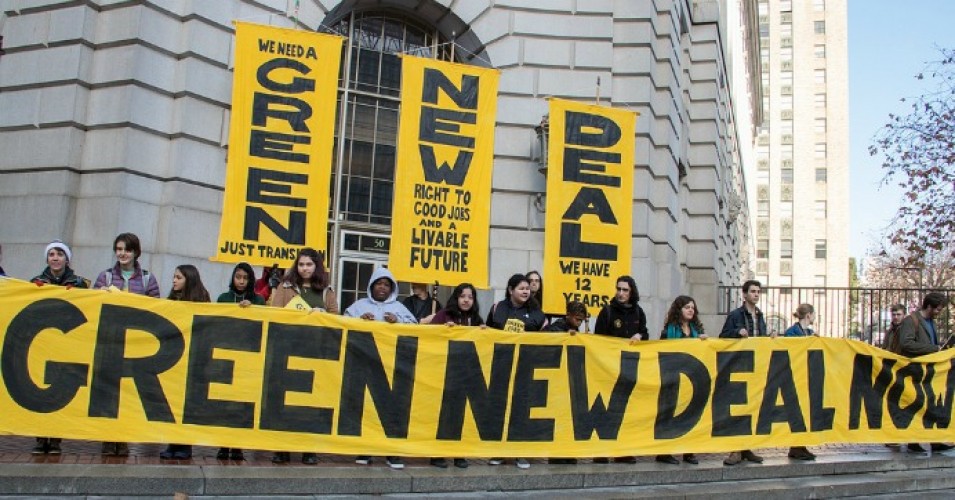So, how to take power? To some extent, simply ignore the issue of power is my answer. Simply prove that you have a better answer.
Richard Murphy is Professor of Practice in International Political Economy, City University of London. He campaigns on issues of tax avoidance and tax evasion, as well as blogging at Tax Research UK
Cross-posted from Tax Research UK

I was asked during the talk that I gave to an Australian conference this morning how I imagined that society could take the power to deliver change, like the Green New Deal.
I answered off-the-cuff, and so do not have a note of what I said, precisely. However, I always answer such questions in broadly the same way. My argument is based upon experience.
Unless we are talking revolutions, and I do not, then the only way to take power that I know of is to outthink the opposition. In practical terms, that means that those who want to change have to explain what it looks like. Unless you can say what it is the alternative power that you want to put in place will do, how, and to what end, then people are not going to help you get it.
I learned this with the tax justice movement. I well recall from 2003 onwards being told that there was not a chance that tax havens would deliver on automatic information exchange of tax data in my lifetime. However, that did not stop a group of us explaining precisely what we needed, which was quite different, and a lot less complicated than the proposal from those who were, in effect, maintaining the status quo. The consequence is that we have now had automatic information exchange for a number of years, and I am still alive.
The same is also true with regard to country-by-country reporting. I can also well remember the conferences and meetings that I went to where the Big 4 firms of accountants were absolutely adamant that it would be impossible to produce this type of data. Ignoring for a moment their wild claims that their clients did not know where they traded, which would of course have meant that they were not keeping the books and records required by company law, I was simply able to point out that this had to be untrue for a whole range of reasons, including local tax laws. Their claim was not possible, but mine, which could be explained in detail, was. The consequence is that country-by-country reporting is now a legal requirement in more than 70 countries, albeit only for tax purposes.
The Green New Deal is, of course, a third example. None of us who sat in Ann Pettifor’s flat to discuss writing this in 2007 and 2008 thought that more than a decade later there would, right around the world, be calls for a Green New Deal, and yet they are the direct consequence of those meetings and the willingness that Colin Hines and I had to keep this issue will live in the barren years between 2010 and 2017 when almost no one talked about it. What we had was a plan.
So, how to take power? To some extent, simply ignore the issue of power is my answer. Simply prove that you have a better answer. Keep at it, persistently explaining what people keep telling you is nonsense, and then the day comes when suddenly everyone thought it was a great idea all along. That is what is happening with modern monetary theory now. At that point you don’t need to take power: people want to be part of its delivery process instead.
That is why I don’t go into politics. It is why I stick with the ideas. I have more chances of changing the world that way, even if by only a little bit, and only on occasion. That will do.


Be the first to comment